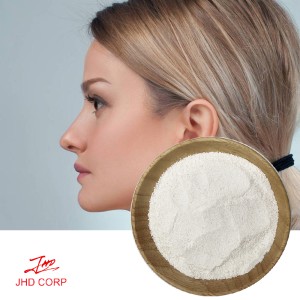What Is NMN?
What Is NMN?
Nicotinamide Mononucleotide (NMN) is a naturally occurring molecule classified as a derivative of vitamin B3. It exists in trace amounts in common foods like broccoli, avocados, and edamame, but its popularity stems from its role as a precursor to Nicotinamide Adenine Dinucleotide (NAD+), a critical coenzyme involved in hundreds of cellular processes. As we age, NAD+ levels in the body decline significantly—by age 50, levels may drop to half of those in young adults. This decline is linked to age-related diseases and reduced cellular function, sparking interest in NMN as a potential intervention.
How Does NMN Work?
NMN’s primary function is to boost intracellular NAD+ levels. Once consumed, NMN is rapidly converted into NAD+ through a short metabolic pathway. NAD+ acts as a "cellular fuel" for enzymes like sirtuins (often called "longevity genes") and PARPs, which regulate DNA repair, energy metabolism, and oxidative stress response. By replenishing NAD+, NMN is thought to support these vital processes: it may enhance mitochondrial function (the cell’s powerhouses), improve DNA repair efficiency, and modulate inflammatory pathways—all of which are key to mitigating age-related decline.
Current Applications: Market Reality and Regulatory Landscape
NMN’s most widespread application today is as a dietary supplement, with a global market projected to reach $12 billion by 2025. The industry saw a pivotal shift in 2025 when the U.S. FDA formally recognized NMN’s legality as a dietary supplement, clearing regulatory uncertainties that had long hindered market growth. This decision has spurred product innovation: leading brands now use advanced technologies like enteric-coated capsules (boosting bioavailability threefold) and "N+1 formulas" that combine NMN with AMPK activators, Q10, and glutathione for synergistic effects.
Regional markets show striking disparities. China dominates global raw material production (accounting for 90% of global capacity) but maintains strict regulations, forcing domestic companies like Kingdomway to export raw materials for overseas processing before reimporting finished products. In contrast, Japan and the U.S. have embraced NMN in supplements and functional foods, with high-net-worth consumers driving demand despite costs of up to $100 per day. Beyond supplements, NMN is increasingly used in high-end cosmetics for its antioxidant properties, with a 23% share of China’s NMN powder market in 2024.
Summary
NMN has evolved from a scientific curiosity to a commercial reality, with a booming supplement market driven by FDA approval and technological advances. Its ability to boost NAD+ levels holds promise for supporting cellular health, though human evidence of anti-aging effects remains preliminary. Current applications are concentrated in supplements and cosmetics, with regional regulatory differences shaping market dynamics. Looking ahead, clinical breakthroughs and regulatory clarity could unlock new medical uses, but quality control and long-term safety research must address existing gaps.
Tags What Is NMN?














